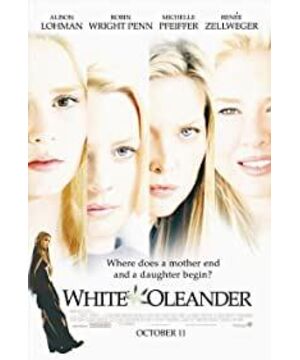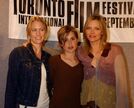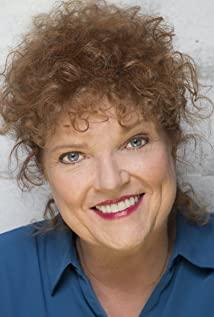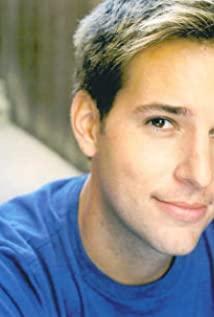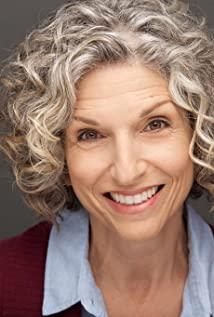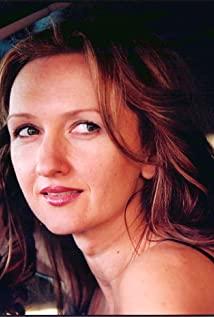Text / Zu Yi
The last paragraph of Janet Finch's novel "The White Oleander":
I smell that burnt midnight fire again,
I want to feel the heat of the Santa Ana wind.
It's a secret longing,
Like a song I can't stop humming,
Or like someone dear to me that I can never have.
Wherever I go to the ends of the earth,
My compass always points west,
I always know what time it is in California.
The film "White Oleander" is adapted from Janet Finch's novel of the same name. Grid. In this film, the director uses the perspective of his daughter's memories of her adulthood, unfolds the wounds that cannot be completely healed in her soul, and then locks the restlessness into a monologue with realistic tranquility, leaving viewers with a frame of sadness that cannot be driven away.
The milk is slowly poured into the glass, the oleander is inserted into the glass, psychedelic white, followed by the sound of glass breaking, the picture is chaotic, and the camera cuts to the mother being taken away by the police... This scene, after a long time, with growth, always Live in Astrid's dream. Of course, she still remembers that autumn, when the hot desert wind came violently, and the earth was scorched at midnight. In the small town of Santa Ana, her hometown, her mother hugged her, on the high roof, talking and laughing against the wind...
Two visits, the mother said to her: "You seem surprised in your letter, I am still beautiful here. Our beauty comes from our strength, it changes us. Because someone gave you a little attention, put yourself and yourself and He's involved. Because you're alone. Loneliness is the human condition and no one can fill that void. The best thing you can do is know yourself and what you want. Don't let those beasts get in your way .It's easier to live without friends, maybe."
"Never leave a man overnight, never apologize, never explain. Don't you think about it? How did it happen? I raised you, not bible-promoting trash. I let you think for yourself , if self-thinking is evil, then every artist is evil. Evil is cunning. Once you think what it is, it changes its form. It takes a lifetime to learn what it is. Don't Forget who you are, you are my daughter, you are perfect. I gave birth to you to think for yourself."
Ingrid, who violated all her own rules and killed her lover and went to jail, is destined to change the inherent trajectory between mother and daughter. Since then, Astrid has started a lonely foster life, and the beautiful she often suffers from hostility, even if it changes from family to family, a journey of self-discovery. Every family has different dangers for her, from which she also learned the profound experience and lessons of each family, but she could not escape the control of her mother who was in prison, through letters and visits.
When the hurt comes from the parents, there is no break, and there is no control. Behind the mask of hypocrisy is cruel selfishness, jealousy and possession. This is very similar to the spirit of raping family members in the name of love in real life, and children never need to grow up. Therefore, it is not difficult to find that in many families with strong parents, the children are often cowardly and humble, while the children who are rebellious and stubborn by nature often have cowardly or even useless parents. Both native and regenerated families. Individual personality formation is often polarized. For example, in the definition of physics, things are balanced and parallel to each other.
Speaking of the movie, Astrid came to the first home to send samples, and felt fatherly love from the hostess boyfriend Ray, but because she had a beautiful appearance like her mother, the hostess mistakenly seduced her boyfriend. Shot to death. After recovering, she entered the orphan center, and was often bullied because of her beauty. She cut her blond hair and wore a dog's haircut, and began to learn to protect herself.
The boy Paul approached her and they both liked to paint. She couldn't get her mother's approval, and even told her that she had to go on by herself no matter what, not a man. Entering the adoptive family again, I am loved by the family, especially Claire, the adoptive mother of the ex-star star. But because of her mother's jealousy towards her adoptive mother, she instigated Claire, who had had a rift with her husband, to commit suicide. Claire's death was a big blow to Astrid. She realized that her mother's toxicity was extraordinary, and she volunteered to be adopted by a Russian female trafficker. Her mother asked her to testify for herself in court. Knowing about her life experience, she asked her to let her go and watched her get into the prison van...
Astrid's journey through hardship and loss to maturity, joy and true self-reliance. Regardless of barrenness or prosperity, just like the vast majority of people, we always have to bear unforeseen and uncontrollable changes. The flesh and blood of every step of hard growth and collage is healed from a lot of damage and plundered from a large piece of happiness. , to be shaped into a variety of personalities that are different from people. Just like the great philosophers and the sages said, life is lonely after all, in a hypocritical world, you need to put on armor to protect from the ugly, open your arms to meet the rising sun, stay clear-headed to avoid the obscenity, and grasp the fleeting moments keenly and quickly. beautiful.
When you realize that there is really no one or anything to rely on except your parents, when you have an epiphany in the illusory scenery, you will also reluctantly realize that only by making your hands firm and strong can you reduce the harm of running in with the world. . When considered weak, even the most rudimentary compassion can't stand repeated rejection, even if you have unrivaled beliefs, dreams, or even other things, all hard and soft things will turn into coldness. It’s hard to be a human being, and it’s hard to be a human being. Everyone survives tenaciously in the cracks. Whether they are growing up or after adulthood, people in their families and careers have tried to escape countless times, but they all gritted their teeth and persevered until the end. Life ends in some form.
The mother in the movie loves white oleander very much, and she is as elegant as an oleander flower ball, just like an extremely beautiful white oleander. She is not only Astrid's mother, but also the flirtatious, sexy and glamorous artist Ingrid. Director Peter Kosminskin follows the idea of novelist Janet Finch, portraying her as selfishness and narcissism, arrogance and prejudice to playing with fire; she is destined to be an empiricist mother; When it comes to destroying the other party's toxic lover; it is not as indestructible as a rock, at least when facing an adult daughter.
In the shadow of my mother, this is a bond, and it is also a way to escape. Astrid will end up being an artist like her mother. Therefore, in the director's view, as an art and a work of art beyond life, it wants to say: the realm of love is letting go, not controlling; it is independence, not isolation.
One day, you look out the window and I will be there.
View more about White Oleander reviews


